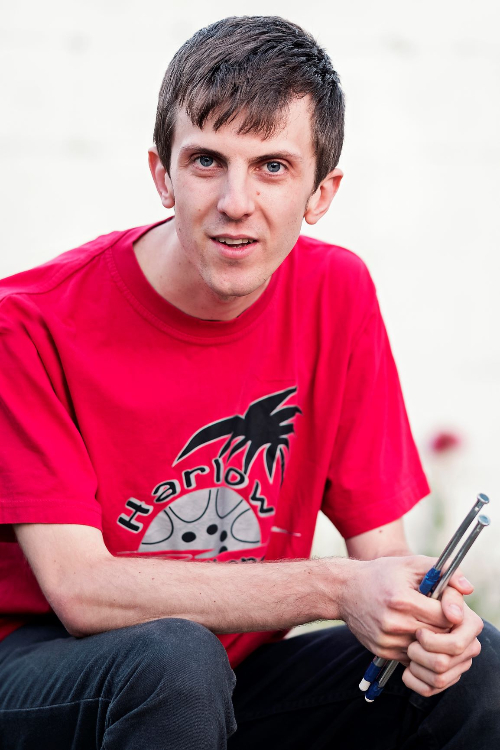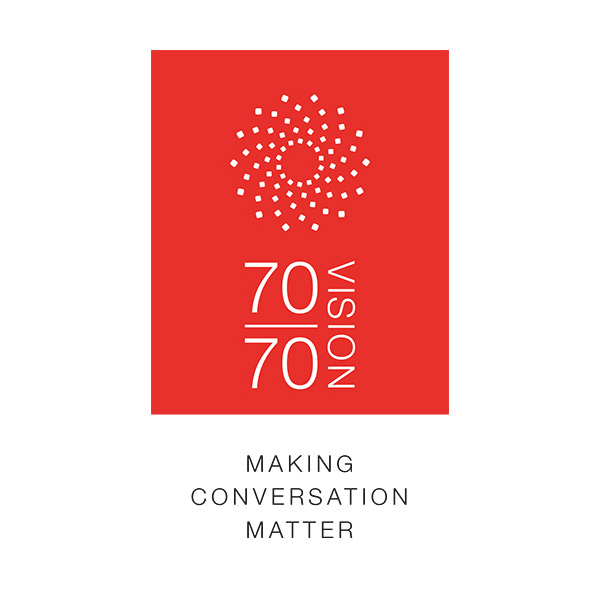 My son (pictured) was born on 1 January 1994. His well-timed arrival and status of being a New Year baby warranted his photo appearing in a Harlow newspaper. With this being my second child I was well versed in motherhood. Call it mother’s intuition, if you like, but even when he was just a few days old I could sense that something wasn’t quite right. When I looked into his eyes there was a sense of depth – a lack of responsiveness that troubled me. As he grew older he failed to meet the major milestones expected. Professionals dismissed concerns from me and my husband over our son’s lack of communication, inability to make eye contact and refusal to crawl. It wasn’t until he started preschool that our suspicions were taken seriously – when his teacher phoned and compassionately voiced her opinion. In an instant it gave me a weird sense of relief. Relief that a third party recognised our concerns; yet at the same time it released a wave of apprehension of what lay ahead.
My son (pictured) was born on 1 January 1994. His well-timed arrival and status of being a New Year baby warranted his photo appearing in a Harlow newspaper. With this being my second child I was well versed in motherhood. Call it mother’s intuition, if you like, but even when he was just a few days old I could sense that something wasn’t quite right. When I looked into his eyes there was a sense of depth – a lack of responsiveness that troubled me. As he grew older he failed to meet the major milestones expected. Professionals dismissed concerns from me and my husband over our son’s lack of communication, inability to make eye contact and refusal to crawl. It wasn’t until he started preschool that our suspicions were taken seriously – when his teacher phoned and compassionately voiced her opinion. In an instant it gave me a weird sense of relief. Relief that a third party recognised our concerns; yet at the same time it released a wave of apprehension of what lay ahead.
Our son’s inability to fully communicate and get himself understood at times gave way to frustration and anger. This led to him becoming very isolated, by virtue of me being his rock that he clung to 24/7. It was a bond which even his father and brother found difficult to break and at times accept, with my husband at a particular disadvantage due to the macular degeneration he has had from birth which has left him almost blind.
It soon became apparent that mainstream school wasn’t suitable for my son. After a struggle with the authorities it was deemed that he had moderate/severe learning difficulties and therefore was enrolled at Harlow Fields – a school for those with special educational needs. I wasn’t looking for my child to be labelled with a diagnosis, just a projection for the future based on ‘XYZ’ factors. However, even to this day, his condition is best referred to as a SWAN – a syndrome without a name.
"I could sense that something wasn't quite right"
It’s difficult to explain the mental trauma I felt upon him leaving for his first day at school. He left with little to say for himself, but returned full of enthusiasm and eager to tell me about his day. He’d formed friendships with classmates based on first impressions, regardless of their disabilities. He really blossomed at Harlow Fields, his development surprising us all.
As he approached teenage years he was hitting the development targets of a five-year-old, which at times led to looks of disapproval from passers-by, when my son (without any visible disability) was in the midst of a tantrum. His social life outside of school was also a struggle – ‘NO’ being his answer to any extracurricular activity. Aged thirteen, he was invited to attend a steel pan workshop in Harlow. A key element of the workshop was including children like my son, who might otherwise get overlooked. From the off his answer was a firm but unsurprising NO. That is until the morning of the workshop when, for some inexplicable reason, he changed his mind, resulting in frantic phone calls to the organiser, who agreed he could attend. We arrived at a school hall packed with children. Guided by an instructor, trained in assisting children with disabilities, my son was given a simple sequence of notes to follow on a steel pan. Until then even the simplest of sequencing had been a struggle. However, much to my amazement, by the end of the two-day workshop he was playing, alongside other children, in an impromptu concert for parents, with one parent in particular trying – unsuccessfully – to hold back tears of joy.
The Harlow Steel Band saw the strides he’d made in such a short time and therefore invited him to join. Little by little his confidence grew, as did his all-too-short attention span. I’m confident that a key factor in his development, along with his willingness to take on further challenges and opportunities, was the sense of belonging that the club afforded him, giving him a chance to interact among those who didn’t judge, instead just gave him encouragement and allowed him to integrate. I can’t express how grateful I am to the club – not only for what they’ve given my son, but in a roundabout way to myself too. Namely an opportunity for me to engage socially with other parents and club organisers – something I all too often missed out on.
"I can't express how grateful I am to Harlow Steel Band"
I’d very much like my son to take his place in society – it’s something any parent wants. However, it’s a big decision, but nothing compared to the thought of him being alone and unable to fend for himself when everyone around him has passed away. Maybe living alone is a step too far, assisted living is a more likely option, somewhere that gives him the advantages of independent living, but with a majority of the day-to-day tasks taken care of. It remains unclear whether this transition for our son will happen. But if it did, it would mark a milestone for me and my husband inasmuch as we could dedicate time for each other. It’s not that we begrudge what we’ve done for our son – far from it. We never expected to have a child with special needs, but you learn to adapt and we love him more than anything can express. Seeing our son’s development over the years with the help of those in the Harlow Steel Band has been amazing.
